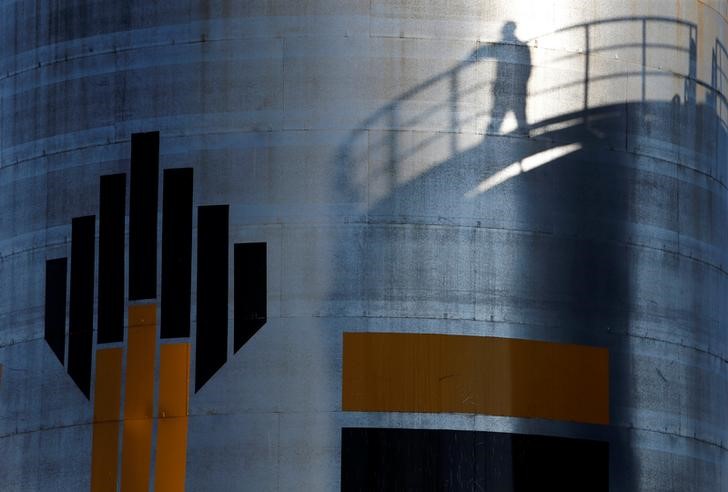Bitcoin price today: falls to 2-week low below $113k ahead of Fed Jackson Hole
(Bloomberg) -- Oil jumped back above $58 a barrel and was set for the longest run of gains in more than a year as U.S. sanctions on Russia’s largest producer and conflict in Libya shifted the focus to supply threats from virus-driven demand concerns.
The U.S. sanctioned a unit of Russia’s Rosneft PJSC for maintaining ties with Venezuela’s president and its state-run oil company, threatening to crimp the nation’s ability to export crude. In Libya, fighters loyal to eastern military commander Khalifa Haftar shelled Tripoli’s port, forcing a halt to shipping and leading to the suspension of cease-fire talks.
Oil is extending its longest rally since January 2019 after surging last week on optimism that the worst economic impacts of the deadly coronavirus had been accounted for. Any disruptions to global supply could go some way to offsetting the demand destruction from the outbreak, just as China and other nations in Asia roll out stimulus packages to cushion the blow.
Rosneft’s sanctioned unit has been “Venezuela’s primary conduit for brokering cargoes, which find their way predominantly to refineries in India and China,” Stephen Innes, Asia Pacific market strategist at AxiCorp, said in a note. “Throttling this Asian supply channel will provide some support for oil prices.”
Brent for April settlement climbed 62 cents, or 1.1%, to $58.37 on the ICE (NYSE:ICE) Futures Europe exchange as of 1:07 p.m. in Singapore after gaining more than 8% in the past six sessions. West Texas Intermediate for March delivery added 57 cents, or 1.1%, to $52.62.
See also: Glencore (LON:GLEN) Enjoyed a ‘Stand Out’ Year in Oil Trading in 2019
Rosneft Trading, the main exporter of Venezuelan crude, was targeted by the U.S. for helping to sell the commodity that bankrolls the regime of President Nicolas Maduro. The sanctions come at a time when markets are waiting for a response from Russia on OPEC+’s proposal to deepen output cuts due to the coronavirus.
The sanctions are the toughest in the U.S. Treasury’s arsenal and render Rosneft Trading effectively untouchable to international companies, including shipowners, insurers and banks. Global tanker rates surged after a unit of China’s biggest shipping company were targeted by sanctions in September for violating restrictions on handling and transacting Iranian petroleum. The sanctions against COSCO’s Dalian unit were removed last month.
Meanwhile, the latest attack in Libya forced authorities to evacuate tankers carrying gasoline and liquefied petroleum gas before they had unloaded, according to an official from state-run National Oil Corp. The nation’s crude output has dropped to around 123,000 barrels a day from 1.2 million barrels before a blockade of the country’s ports by Haftar’s supporters started in mid-January.
“Sanctions will only provide temporary respite, it won’t structurally change the oversupply in the market,” Jeffrey Halley, senior market analyst at Oanda, said by phone from Jakarta. “We have seen the best of the corrective rally. At the end of the day, there is still far too much oil in the world.”
